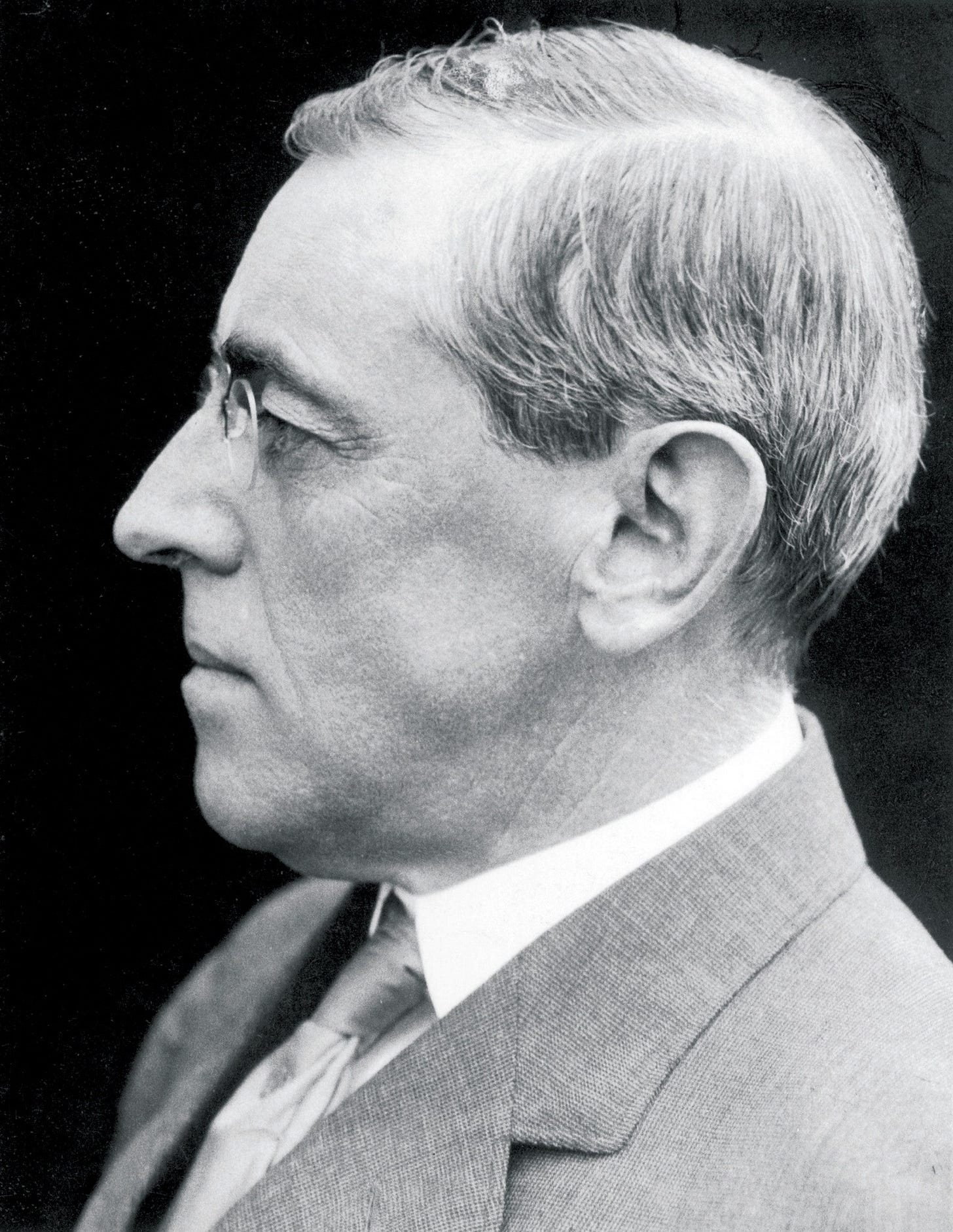Big thinkers tend to believe great events reflect large forces long in the making. Often this is true. But sometimes history hinges on small things—things as minute as the blood vessels inside a single person's brain.
When World War I began in 1914, Woodrow Wilson hoped the United States would remain neutral. But as the fighting in Europe dragged on, he became increasingly convinced that American participation was necessary not only to end the conflict but to create a new structure of international relations, one that would prevent a recurrence of such a cataclysm.
The United States entered the war in 1917 and help the allied powers win in 1918. Wilson sailed to France in 1919 expecting to take a leading role in the Paris peace conference.
His allied counterparts, David Lloyd George of Britain and Georges Clemenceau of France, expected the same thing for themselves. While Wilson focused on the future and what the world might gain, Lloyd George and Clemenceau emphasized the past and what they had lost. A compromise was achieved. Wilson got a League of Nations, designed to prevent further wars. Lloyd George and Clemenceau got harsh punishment for Germany, including large reparations for destruction the war had caused.
Wilson personally carried his copy of the Treaty of Versailles, the Paris suburb where the pact was signed, home to Washington and into the Senate, which would have to ratify it.
Wilson's critics objected to terms of the treaty, especially the League of Nations and the responsibilities it would impose on the United States. They mobilized in opposition.
Wilson took it upon himself to make the case for the League and his expansive vision of American world leadership. He launched upon a cross-country speaking tour. In cities and towns he gave speech after speech, channeling his inner preacher on behalf of righteous democracy.
The effort aggravated existing hypertension until, after a speech in Pueblo, Colorado, he collapsed. His doctor, traveling with him, ordered the presidential train to head straight for Washington. Following arrival, Wilson suffered a devastating stroke, which left him disoriented and partially disabled.
On his speaking tour Wilson had been making progress building a backfire against the Senate opponents of the treaty. But with the stroke his voice fell silent. The treaty and the League lost their most powerful advocate.
Wilson’s cause also lost flexibility. Some of the skeptics were willing to ratify the treaty if conditions could be added. A healthy Wilson might have made the necessary compromises. The stricken Wilson could not.
It's unclear how much knowledge of the sentiment of the Senate was able to penetrate his fog. His wife, Edith, kept nearly all visitors away. Whether from ignorance or unbending principle, Wilson refused the modifications that might have saved the treaty.
It went down to defeat, and with it sank the possibility of American membership in the League of Nations.
The absence of the most powerful country in the world sorely handicapped the League in responding to the challenges of the postwar decades. The rise of fascism in Italy and Germany and the capture of Japan's government by militarists elicited no more than furrowed brows from the other great powers. Japan’s aggression against China, Italy's assault on Ethiopia, and Germany's swallowing of Czechoslovakia and Austria produced little more of sanction.
By the time another general war broke out in Europe in 1939, the America-less League was moribund. And after Pearl Harbor, when America entered what thereby became World War II, many Americans regretted their country’s failure to heed Wilson a generation earlier. Franklin Roosevelt at once set about atoning for America’s refusal to join the League by spearheading the creation of its successor, the United Nations.
Possibly a second world war would have happened even had America joined the League of Nations and accepted a share of responsibility for global peace and order during the 1920s and 1930s. Events as big as world wars are never unicausal. Yet it's likely more than coincidence that during the era when the United States has played the role Wilson envisioned for his country, there has not been a third world war.
Possibly a healthy Wilson would have failed to garner the Senate votes required for ratification of the Versailles treaty, just as the ailing Wilson failed to do. But early in his presidency Wilson had been adept at compromise, and had he remained healthy a deal might have been struck with the skeptics. Wilson would have led the United States into the League of Nations, and the Pax Americana would have started a generation earlier.
A clogged blood vessel in Wilson's brain made sure that didn't happen.


Top 3 worst president ever.
Wilson's stroke also may have created the first unofficial female President, as Edith Galt Wilson had to address some of the job's responsibilities with her husband incapacitated.